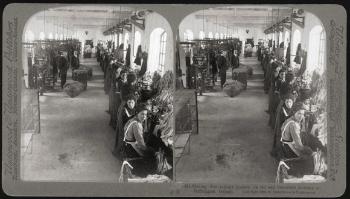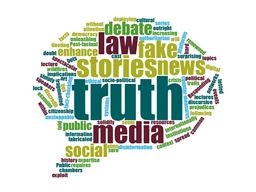
Truth to be Told: Understanding Truth in the Age of Post-Truth Politics
Truth to be Told is a UCD Humanities Institute public lecture series in response to the emergence of what is called a ‘post-factual’ world in which trustworthy models of discursive truth have been derided as old-fashioned, elitist and authoritarian.
A founding ideal for the world wide web was to allow everyone unprecedented access to share information, knowledge and truth unconstrained by established hierarchies and institutions. What followed was a social media revolution that enabled people to exchange information at little cost, producing new modes of online citizenship and participation. The Arab Spring seemed to then provide evidence that social media could indeed empower revolutionary grassroots movements.
But more recent political events cast doubt that social media networks simply enhance citizenship: “digital wildfires” of fake news are increasing and seem to be unstoppable. Such disinformation is hard to discredit because counter-measures are not spectacular, fact-checking takes expertise and resources, and public debate requires more than fleeting attention. To be sure, social media platforms can enhance public debate but they may lock people into echo chambers where prejudices solidify into belief systems that are not tested against truth. And so it is not surprising that authoritarian states have begun to exploit social media by deploying trolls and unleashing bots to spread fabricated information, outright lies or fragmented facts without context.
Responding to a crisis of truth and democracy, this lecture series aims to debate the socio-political, ethical, discursive and cultural implications of truth as a common good. Public lectures by internationally renowned speakers will examine some of the following topics: truth and the law, truth in stories, truth and memory, truth in history, truth within institutions, truth and the media, truth in art.
(opens in a new window)Listen to podcasts from the Series here
27 May 2019: Truth and Religion
Professor Jan Assmann (Honorary Professor of Cultural Studies at the University of Constance (since 2003))
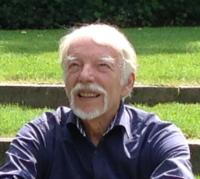
(opens in a new window)Podcast
Jan Assmann, Dr. phil. (born 1938) taught as full professor of Egyptology at Heidelberg University from 1972 to 2003 and is since 2005 Honorary Professor of Cultural and Religious Theory at Constance. He has published on ancient Egyptian religion, literature and history, on cultural theory (“cultural memory”), history of religion (“monotheism and cosmotheism”), the reception of Egypt in European tradition, literary theory and historical anthropology. Assmann taught as visiting professor in Paris, Oxford, Jerusalem and in various universities in the USA (Rice, Yale, Chicago). He received honorary degrees from Münster, Yale and Jerusalem (Hebrew University) and is a member of various German and foreign Academies. Since 1968 he is married to Aleida Assmann, Professor em. of English and Comparative Literature at Constance University, and has five children.
Books in English include The Invention of Religion. Covenant and Faith in the Book of Exodus (trans. Robert Savage), Princeton 2018; From Akhenaten to Moses, AUC Press Cairo 2014; The Price of Monotheism, trans. W. Savage, Stanford UP 2009; Of God and Gods, Wisconsin UP Madison 2008); The Mind of Egypt. History and Meaning in the Time of the Pharaohs, (trans. Andrew Jenkins) Harvard UP, Cambridge Mass. 2003; Moses the Egyptian: The memory of Egypt in Western Monotheism, Cambridge, Mass.: Harvard University Press, 1997.
13 September 2018: Truth and Science
(opens in a new window)Professor Philip Kitcher (John Dewey Professor of Philosophy, Columbia University)
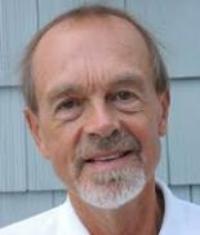
(opens in a new window)Podcast
Professor Kitcher went to Christ’s College Cambridge to study mathematics. After leaving Cambridge, he went to Princeton University, where he obtained a Ph.D. in philosophy/history and philosophy of science. Since then, he has taught at Vassar College, the University of Vermont, the University of Minnesota, the University of California at San Diego, and, most recently at Columbia. His principal interests have been in the philosophy of science. After working on the philosophy of mathematics early in his career, he began to write on issues in the philosophy of biology and in general philosophy of science. He is currently interested in the ethical and political constraints on scientific research, the evolution of altruism and morality, and the apparent conflict between science and religion. His principal current research projects focus on pragmatism, and on issues in philosophy in/and/of literature.
Book publications include: Science, Truth, and Democracy, Oxford University Press, 2001; paperback 2003; in a Democratic Society, Prometheus Books, 2011; Philosophy of Science: A New Introduction (co-authored with Gillian Barker); Oxford University Press, 2013; Life After Faith: The Case for Secular Humanism, Yale University Press, 2014.
30 May 2018: Truth and History
(opens in a new window)Professor Peter Fritzsche (W. D. & Sara E. Trowbridge Professor of History, University of Illinois at Urbana-Champaign)
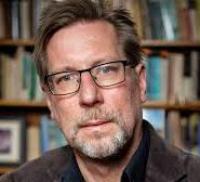
(opens in a new window)Podcast
Peter Fritzsche is the W. D. & Sara E. Trowbridge Professor of History at the University of Illinois where he has taught since 1987. His books include Reading Berlin 1900 (1996); Stranded in the Present: Modern Time and the Melancholy of History (2004); Nietzsche and the Death of God (2007), Life and Death in the Third Reich (2008) and An Iron Wind: Europe under Hitler (2016) which was recently short listed for Phi Beta Kappa's 2017 Ralph Waldo Emerson Prize for contributions to the intellectual and cultural condition of humanity.
24 April 2018: Truth and Politics
(opens in a new window)Professor Ivana Bacik (Reid Professor of Criminal Law, Criminology and Penology at Trinity College Dublin)
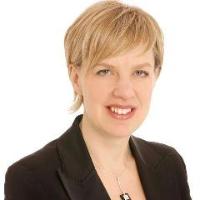
(opens in a new window)Podcast
Senator Ivana Bacik, LLB, LLM (Lond), BL, FTCD, is Reid Professor of Criminal Law, Criminology and Penology at Trinity College Dublin, a Senior Lecturer and Fellow of Trinity College Dublin, and a barrister. She is a Labour Party Senator for Dublin University (elected 2007, and re-elected 2011 and again in 2016), and was Deputy Leader of Seanad Eireann 2011-16. Ivana has written and published extensively on criminal law, criminology, human rights, constitutional law and related matters, and has a long track record of campaigning on civil liberties, penal reform and feminist issues. She was Editor of the Irish Criminal Law Journal from 1997-2003 and co-authored a major report on gender discrimination in the legal professions in Ireland (Gender InJustice, 2003). Her other publications include Kicking and Screaming: Dragging Ireland into the Twenty-First Century (O’Brien Press, 2004); and she is co-editor (with Mary Rogan) of Legal Cases that Changed Ireland (Clarus Press, 2016).
6 February 2018: Truth and Memory
(opens in a new window)Professor Aleida Assmann (Emerita Professor of English and Comparative Literature, University of Konstanz)
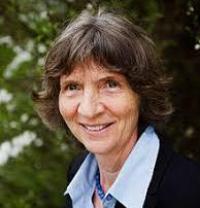
(opens in a new window)Podcast
In 2014 The Royal Netherlands Academy of Arts and Sciences awarded the Dr A.H. Heineken Prize for History to Aleida Assmann. In 2017 Aleida and Jan Assmann won the Karl-Jaspers Prize 2017 by the Universität Heidelberg, the Heidelberg Academy of Sciences and Humanities and the city of Heidelberg. In November 2017 Aleida and Jan Assmann will receive the Balzan Prize (International Balzan Prize Foundation, Switzerland) “for their shared, inter- and transdisciplinary elaboration of the concept of “cultural memory” and its defining clarifications as a paradigm in the field of cultural studies, as well as in public debates; for a decades-long exchange about very different historical realities and models, which in a truly extraordinary way proved to be complementary; for the work carried out independently, of far-reaching impact, which presents collective memory as a requirement for the formation of the identity of religious and political communities.”
Aleida Assmann has published hundreds of essays, books and collections of articles on English literature, cultural memory and ‘remembrance’. She is a member of the Academies of Science in Brandenburg, Göttingen and Austria, and received an honorary doctorate from the Faculty of Theology at the University of Oslo in 2008. In 2009, the Alexander von Humboldt Foundation and the Max Planck Society presented Assmann with a Max Planck Research Award (€ 750,000). In 2011, she received the Ernst Robert Curtius Prize for essays from the University of Bonn Society.
7 December 2017: Truth in Stories
(opens in a new window)Dame Marina Warner DBE, FRSL, FBA (Professor of English and Creative Writing, Birkbeck College, University of London and Professorial Research Fellow, SOAS, 2014-2017)
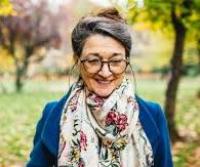
(opens in a new window)Podcast
(opens in a new window)Video
Marina Warner’s critical and historical books and essays explore different figures in myth and fairy tale, such as the Virgin Mary and Joan of Arc; more recently she has concentrated on fairy tales, including the Arabian Nights. She also writes novels and short stories, often drawing on mythic or other imaginary predecessors to translate them into contemporary significance – to re-vision them. Stories come from the past but speak to the present, and she has found that she needs to write stories as well as deconstruct them and place them in historical contexts, because she herself loves reading works of imagination, and would like to join the conversation with admired predecessors, who range from Apuleius to Virginia Woolf, Italo Calvino, and Angela Carter.
Her books include Fairy Tale: A Very Short Introduction, (January 2018), Forms of Enchantment: Writings on Art and Artists (forthcoming 2018), Planting Signs: The Art of Jumana Abboud (Autumn 2017), Phantasmagoria: Spirit Visions, Metaphors, and Media (2006), and Stranger Magic: Charmed States and The Arabian Nights (2011). The Lost Father (l988), was short listed for the Booker prize, and in 2000, The Leto Bundle (2000) was long-listed. The Shadow Image(ed. Rut Blees), with essay and photographs from a trip to China in 1975 by Marina Warner, is due to be published in 2017.
27 September 2017: Truth and the Law
(opens in a new window)The Hon Mr Justice Peter Charleton (Judge of the Supreme Court of Ireland)
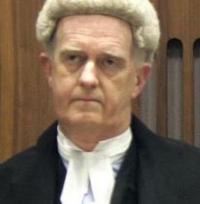
(opens in a new window)Podcast
Peter Charleton commenced practice at the Bar in 1979 and took silk in 1995. From 2002 to his appointment to the High Court in 2006 he was counsel to the Morris Tribunal; a statutory enquiry which looked into misconduct in the Garda Síochána. In the High Court he was assigned principally to the commercial list. He was appointed to the Supreme Court in July 2014. A Dubliner, he is married with children. He has published papers in journals, including the Maastricht Journal of European and Comparative Law, the International Journal of Law and the Family, the Yearbook of the International Commission of Jurists, Intellectual Property Law and Policy, the Journal of Criminal Law, the Bar Review, the Journal of the Judicial Studies Institute of Ireland, the Irish Law Times, the Gazette of the Incorporated Law Society of Ireland and the Irish Criminal Law Journal.
His books include Irish Criminal Law (1999, Butterworths, with McDermott and Bolger), and an analysis of human destructiveness, Lies in a Mirror: An Essay on Evil and Deceit (Blackhall Publishing, 2006). He lectured from 1986 to 1988 in Trinity College Dublin, from which he graduated in 1980. He is the Irish representative on the Colloque Franco Brittanique Irlandais. He was a founder member of the RTÉ Philharmonic Choir and was chairman of the National Archives Advisory Council 2011-2016.



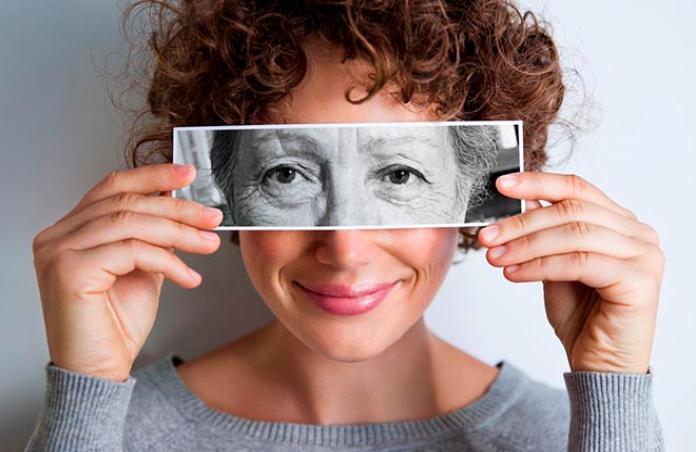

 Judy Wajcman
Judy Wajcman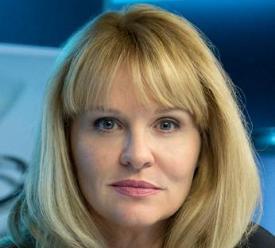 Mary Aiken
Mary Aiken







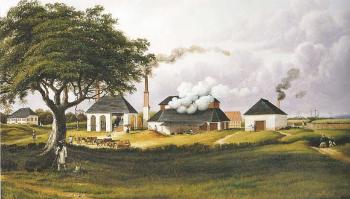
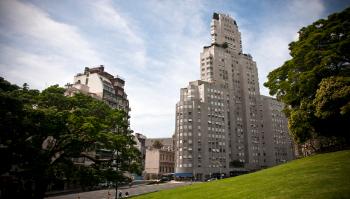 y and Cultural Policy)
y and Cultural Policy)